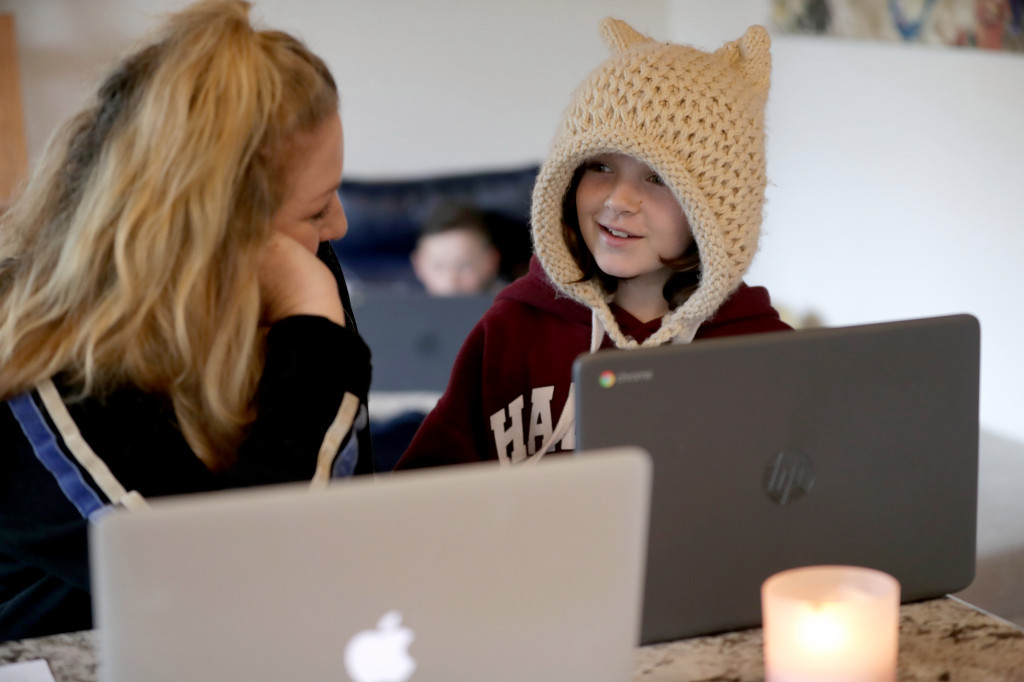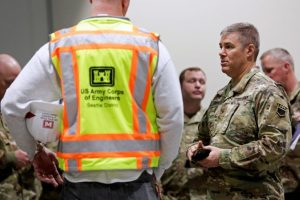In normal times, high-achieving Bay Area parents might ask if a less-than-stellar grade or other educational setback will hurt their child’s chance “of getting into Stanford.”
Now, those same parents might have similar concerns about their daughter or son eventually getting into a top college as K-12 students around the state look to lose an entire school quarter due to coronavirus-related school closures.
But a top education expert at Stanford tells parents they shouldn’t stress so much about their children’s grades and academics in “these uncertain times” and suggests they think about “the big picture.”
“For families concerned that their children are missing out on academic content, remember that at a time like this, less is more,” writes Denise Pope, a senior lecturer at the Stanford Graduate School of Education and co-founder of Challenge Success, in a post on the organization’s website. “I encourage you to broaden your definition of learning and focus on playtime, downtime and family time.”
Pope said the COVID-19 pandemic means that families should focus on their safety, health and well-being and reach out to friends, neighbors and others to offer support and connect virtually.
Pope helped establish Challenge Success in 2007 at Stanford University as a way to counter our culture’s excessive focus on grades, test scores and performance, at the expense of raising children and young adults who can be resilient, ethical and self-motivated.
Pope noted that each family is dealing with this national emergency in different ways, depending on their children’s schools and how they are providing remote lesson plans and resources. Pope notes that some schools aren’t offering much, and worries about under-served children who rely on their schools for food, safety and stability.
For families that are receiving plenty of help from schools, Pope said they should do their best to honor what the school is asking them to do. But she said parents should also let their children’s teachers know if the workload feels like too much and focus on helping the children build critical skills, like reading, problem solving, and communication.
Here are Pope’s more specific suggestions:
Have children read for pleasure: For children of all ages, “time spent reading is strongly linked to academic achievement,” Pope said. That includes re-reading childhood favorites, reading aloud with a family member, and listening to audiobooks.
Promote personal interest projects: Let children explore something they are curious about, whether it’s about “researching sea otters, understanding the stock market or analyzing the songs from “Hamilton,” Pope said.
Encourage social time: Have children connect to friends through Facetime, social media, phone calls, and even handwritten letters. They can also leave chalk messages on driveways or find other ways to interact with neighbors and friends.
Enjoy family time: Pope said people should truly spend time together as a family, instead of having individuals glued to a screen, or staying at opposite ends of the apartment or house. “Prepare and eat meals together, play games, or take a walk,” Pope said. “Use this time to check in on how your family is coping; calm fears and let your children know that you are there to keep them safe.”
Have children do chores. Pope said children are never too young or too busy to help out around the house, and contributing to the family helps them learn responsibility and independence.
Help others. “Find big or small ways to be of service to somebody else,” Pope said.
Exercise, meditate and take deep breaths: “Go for a run, do family yoga, coordinate with friends to do virtual workouts together, or put on some music and dance.”
Get enough sleep. With no school to get to, teens can sleep in later than usual. With no extracurriculars and homework, children of all ages can get the recommended nine to 11 hours of sleep at night and learn good “sleep hygiene” — getting to bed at an apporpiarae hour and keeping devices out of bedrooms.
Use screen time sensibly: It’s OK if parents need to have their children watch TV or be on the computer so they can work, but they should balance out that screen time with plenty of breaks and other activities.



















